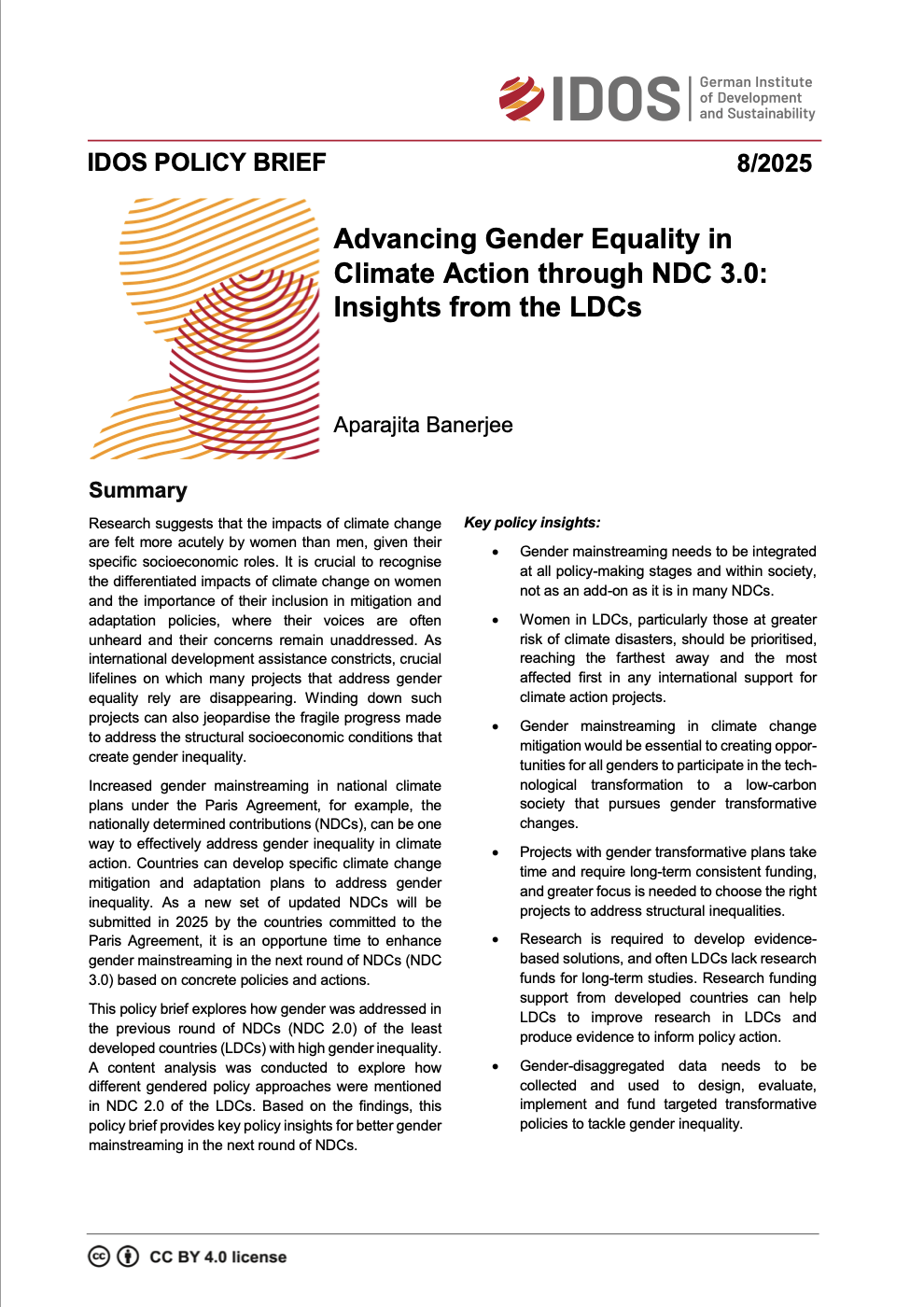
Keyword(s)
Author(s)
Aparajita Banerjee
Country(ies)
Publisher
Published Date
Access
DOI
German Institute of Development and Sustainability (IDOS)
Research suggests that the impacts of climate change are felt more acutely by women than men, given their specific socioeconomic roles. It is crucial to recognise the differentiated impacts of climate change on women and the importance of their inclusion in mitigation and adaptation policies, where their voices are often unheard and their concerns remain unaddressed. As international development assistance constricts, crucial lifelines on which many projects that address gender equality rely are disappearing. Winding down such projects can also jeopardise the fragile progress made to address the structural socioeconomic conditions that create gender inequality.
Increased gender mainstreaming in national climate plans under the Paris Agreement, for example, the nationally determined contributions (NDCs), can be one way to effectively address gender inequality in climate action. Countries can develop specific climate change mitigation and adaptation plans to address gender inequality. As a new set of updated NDCs will be submitted in 2025 by the countries committed to the Paris Agreement, it is an opportune time to enhance gender mainstreaming in the next round of NDCs (NDC 3.0) based on concrete policies and actions. This policy brief explores how gender was addressed in the previous round of NDCs (NDC 2.0) of the least developed countries (LDCs) with high gender inequality. A content analysis was conducted to explore how different gendered policy approaches were mentioned in NDC 2.0 of the LDCs. Based on the findings, this policy brief provides key policy insights for better gender mainstreaming in the next round of NDCs.